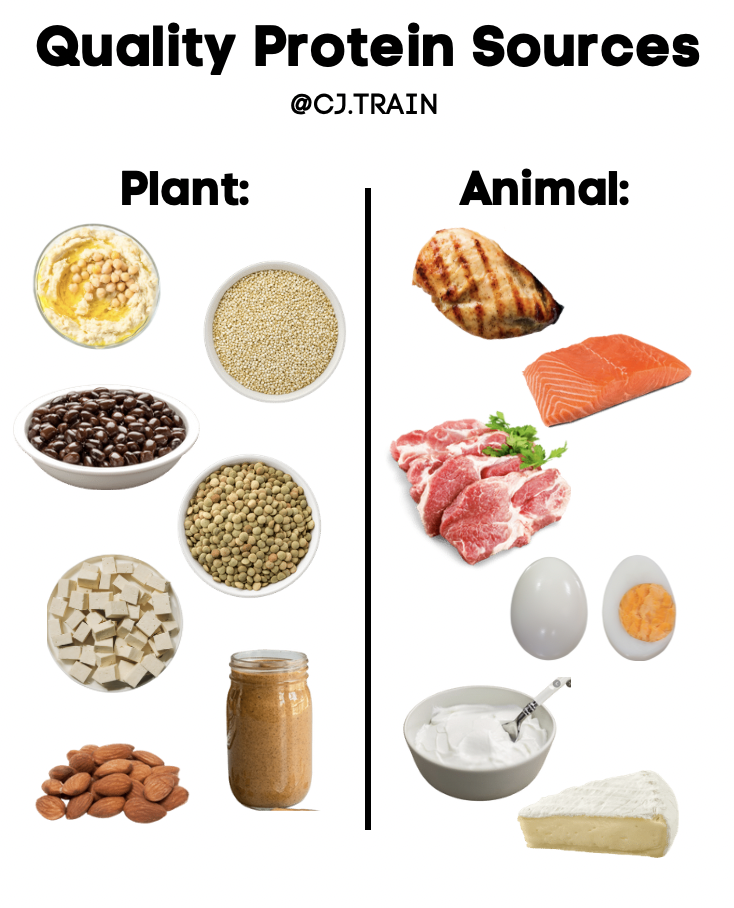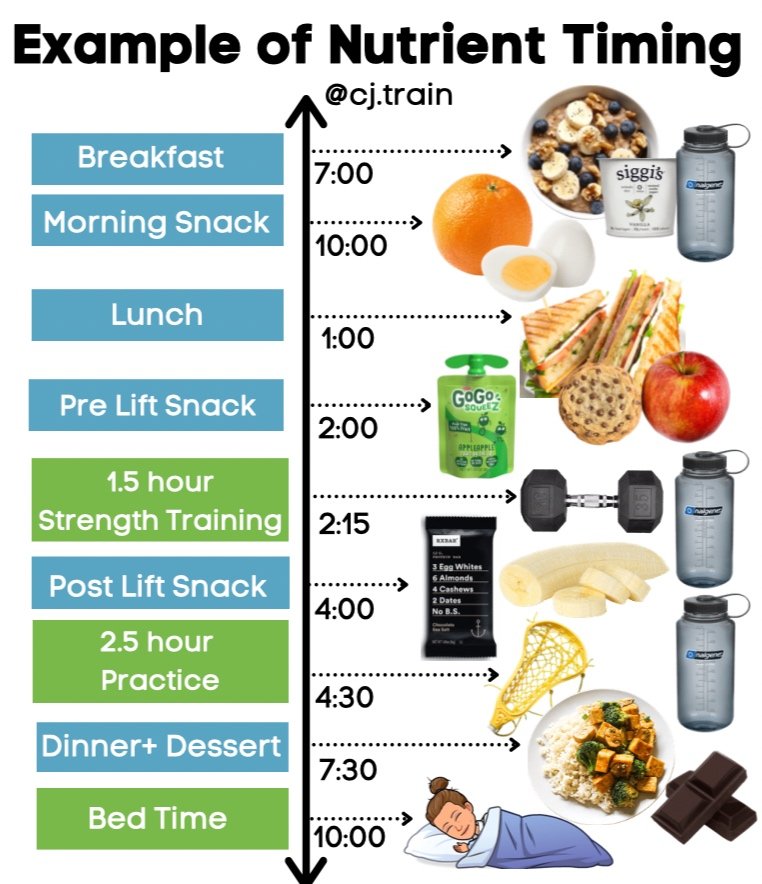Protein Alone Won’t Build Muscle - 4 Ways to Stimulate Hypertrophy
It’s true, athletes have higher protein needs than sedentary individuals. However, protein alone, will not stimulate muscle growth.
In order to build and maintain lean muscle mass athletes need to do the following:
1. Resistance Exercise
Resistance exercise is anything that makes your muscles work against a weight or force. This includes body weighted exercises, lifting weights, walking up stairs or hills, and adding resistance to a bike. Consistently and progressively increasing resistance will force the body to make adaptations overtime restyling in increased muscle size, strength, and power that support the body’s speed, balance, and stability. Every time you do a rep against resistance, you tear your muscle fibers apart. During recovery, muscle fibers increase in thickness and in number. This is known as hypertrophy.
2. Increase Protein Needs:
The general protein recommendation for the average adult is 0.8 grams/kg body weight a day. Fully developed athletes can range anywhere from 1.4-2.0 grams/kg per day. Due to lack of research on nutrition needs in youth athletes, current recommendations for adolescents “are actually based on findings in adult population.(1)” Factors that determine protein needs: age, height, sex, body composition, training load and frequency.
Example:
16 year old female athlete
Height: 5’7’’
Weight: ~145 lbs
Training: 2-3 hours/day; 6 days/week (2 hr lacrosse practice or game, 1 hr strength 2x/wk)
Goal: Maintain muscle mass during 4 month lacrosse season as a midfielder
Needs: Dietitian estimates ~1.4-1.6 g per kg body weight per day to start
Daily Protein Needs = 145 lbs /2.2 = 66 kg * (1.4-1.6 g/kg) = 92-105 g per day
Protein Per Meal = ~25g per meal, ~10-15g per snack
3. Eat Adequate Carbohydrates:
In order to preserve our dietary protein for muscle growth and repair, we have to eat enough carbohydrates to ensure the body doesn’t dip into protein stores (muscle) for energy. This is why it is recommended that athletes:
Get 50-60% of total daily calories from carbohydrates
Consume 20-30 grams of carbohydrates 20-30 min prior to training/competition
Consume 3 grams of carbohydrates to every 1 gram of protein post workout to support muscle recovery and hypertrophy
Examples of good carbohydrates sources can be found in Sugar Isn’t the Enemy - Why Athletes Need Carbohydrates to Fuel Performance.
4. Rest!
It’s really common for competitive athletes to perceive rest as weak when they are constantly challenged to push through pain, be aggressive, dominate and out work the competition. It’s more helpful to view rest as recovery - time your body to repair the torn muscle fibers to grow back stronger before you tear them apart again. Atheltes who do not build rest into training sets, between training days, and within yearly training phase, are at great risk for performance plateau, injury, and burnout. Good rule of thumb is to recovery as “hard” as you train. Train at 100% effort, recover at 100% rest.
Let’s Eat,
Coach Carley
Sources:
Smith JW, Holmes ME, McAllister MJ. Nutritional Considerations for Performance in Young Athletes. J Sports Med (Hindawi Publ Corp). 2015;2015:734649. doi: 10.1155/2015/734649. Epub 2015 Aug 19. Erratum in: J Sports Med (Hindawi Publ Corp). 2017;2017:6904048. PMID: 26464898; PMCID: PMC4590906.



